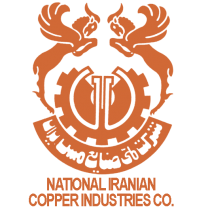اخذ گواهی استاندارد ملی محصول راپچر دیسک
شرکت دانشبنیان «کارا صنعت تدبیر پایا» موفق به دریافت گواهی استاندارد ملی و گواهی دانش نماد برای محصول «راپچر دیسک» شد.
شرکت کارا صنعت تدبیر پایا با برند کاراجت | ®KARAJET دارای بیش از 30 سال تجربه در زمینه طراحی و تولید انواع تجهیزات مکانیکی مانند سیستم وکیوم چند مرحله ای، اجکتور (با سیال محرک بخار، گاز و مایع)، تلهبخار (ترمودینامیکی، مکانیکی و ترموستاتیکی)، سایلنسر، چیلر، دیسوپرهیتر، میکسر، راپچر دیسک، اسکرابر، سپراتور، مبدل حرارتی، فلومتر، کندانسور، اسنوبر و هنگر میباشد.
کاراجت محصولات و خدمات خود را به صنایع مختلف از جمله پالایشگاهی، پتروشیمی، نیروگاهی، صنایع فولاد و معدنی، صنایع غذایی و نوشیدنی، صنایع شیمیایی، صنایع نفت و گاز و توانیر عرضه مینماید.

پتروشیمی هنگام

پالایشگاه نفت بندر عباس

شرکت مهندسی و طراحی صنایع انرژی ( EIED )

شرکت طراحی و مهندسی صنایع پتروشیمی (PIDEC)

شرکت مهندسان مشاور سازه

شرکت مجتمع گاز پارس جنوبی

شرکت پالایش نفت لاوان

شرکت پتروشیمی شازند اراک

شرکت ملی صنایع مس ایران

مجتمع فولاد مبارکه اصفهان

گروه مپنا

پتروشیمی باختر

پتروشیمی شیراز

شرکت جندی شاپور

پالایشگاه نفت آبادان

شرکت طراحی و ساختمان نفت (ODCC)

شرکت نارگان

پتروشیمی بوشهر

شرکت دانشبنیان «کارا صنعت تدبیر پایا» موفق به دریافت گواهی استاندارد ملی و گواهی دانش نماد برای محصول «راپچر دیسک» شد.

شرکت کارا صنعت تدبیر پایا موفق به دریافت گواهینامه صلاحیت پیمانکاری در رشته نفت و گاز از سازمان برنامه و بودجه کشور شد.

شرکت دانشبنیان کاراجت با اتکا به دانش و تجربه 30 ساله در زمینه طراحی و ساخت تجهیزات مکانیک ثابت از جمله انواع سیستم های خلأ مبتنی بر اجکتور، موفق شد طراحی، ساخت، تست و راهاندازی یکی از پیچیدهترین و در عین حال بهینه ترین وکیوم پکیجهای تاریخ فعالیت خود را برای یکی از شرکتهای معتبر نفتی کشور به انجام برساند.

دعوت به همکاری در مجموعه دانش بنیان کاراجت با 30 سال سابقه فعالیت در زمینه طراحی و ساخت تجهیزات نیروگاهی و پتروشیمی

مصاحبه با آقای مهندس انسان، مدیریت بازرگانی شرکت کاراجت با نشریه انجمن ستصا در خصوص طرح نوآورانه سیستم بازیابی گازهای فلر بر پایه اجکتورها .

شرکت کارا صنعت تدبیر پایا (کاراجت) با حضور فعال و مؤثر خود در بیست و نهمین نمایشگاه بینالمللی نفت، گاز، پالایش و پتروشیمی تهران، که از تاریخ ۱۸ تا ۲۱ اردیبهشت ۱۴۰۴ در محل دائمی نمایشگاههای بینالمللی تهران برگزار شد، توانست بار دیگر توانمندیها و دستاوردهای خود را در معرض دید متخصصان و فعالان این صنعت قرار دهد.